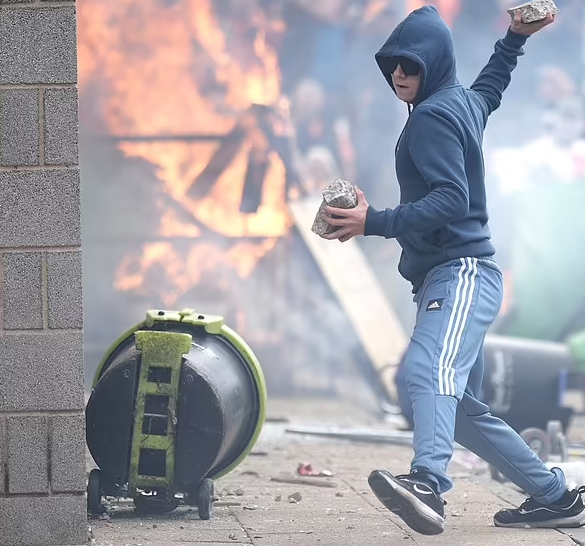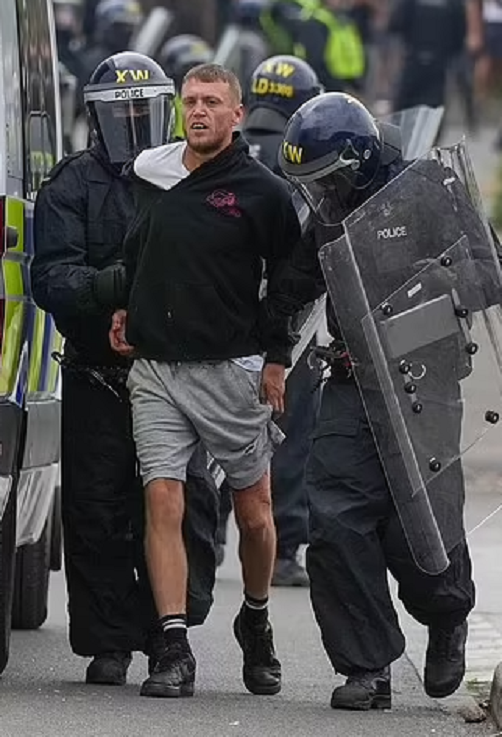The British government confirmed on August 4 that the country’s courts will work all day to speed up the prosecution of those involved in the riots when violence broke out on the streets of Belfast, Hull, Leeds, Liverpool, Manchester and Stoke,…
Britain is witnessing its worst wave of rioting in 13 years, as far-right protests against asylum seekers and ethnic minority communities flare up.
Tensions have risen following a knife attack by a 17-year-old boy that left three girls dead in the town of Southport on 29 July. Misinformation spread on social media claiming the suspect was Muslim and an immigrant has fuelled a wave of anti-Muslim violence from far-right groups.
The incident led to a wave of far-right violence, with protests and clashes taking place across Britain.
Middlesbrough saw a series of worrying incidents of violence over the weekend as far-right groups torched cars and threw rocks.
“We are urging people to stay away from Middlesbrough as police respond to violence in the town,” Assistant Chief Constable David Felton said in a statement. However, the violence in Middlesborough was brought under control by the morning of 5 August, but police will remain in the area for the coming days.
It is understood that 43 people have been arrested in connection with the incident and a full investigation is underway.
On August 5, British Prime Minister Keir Starmer convened an emergency security meeting to respond to the wave of violent anti-immigration protests spreading across the country.
>>> Readers are invited to watch more videos: Riots in France: Scene of bus parking lot destroyed overnight

